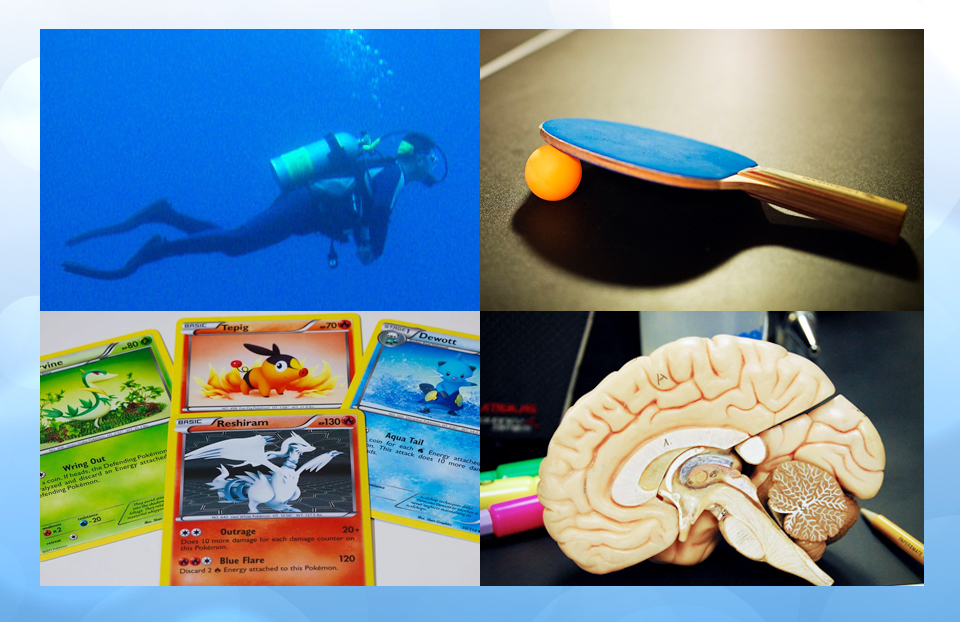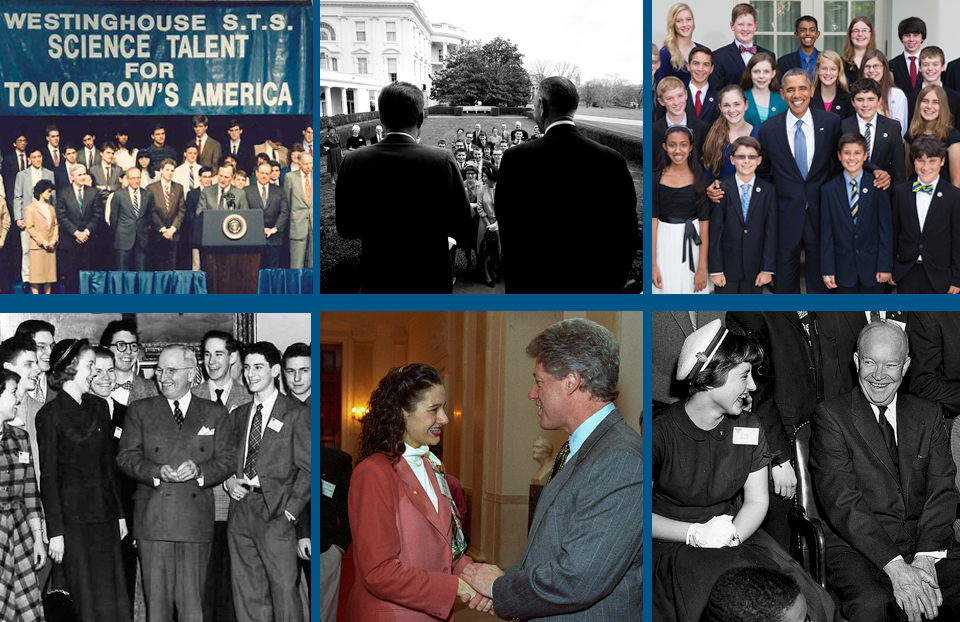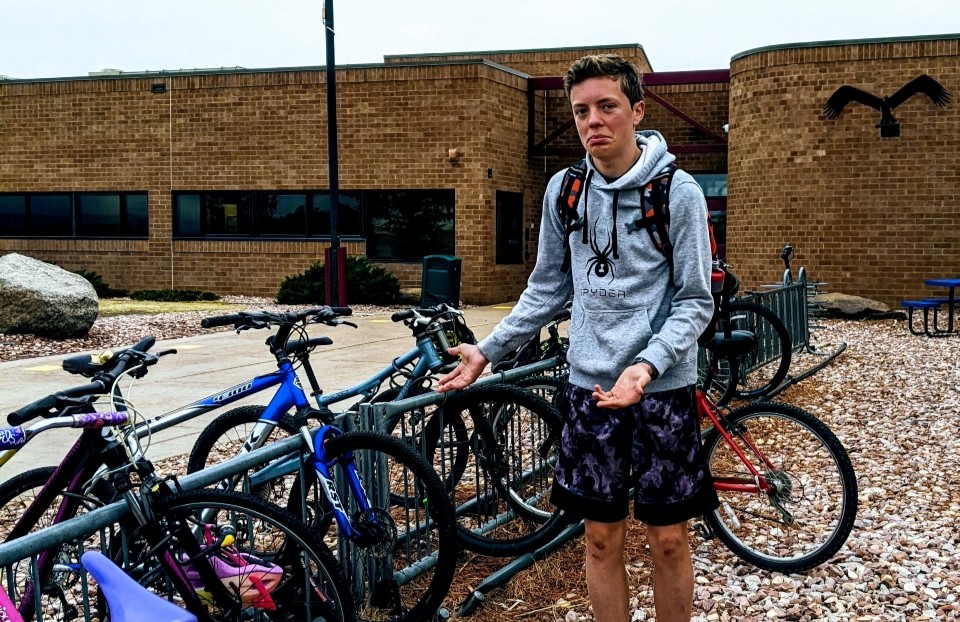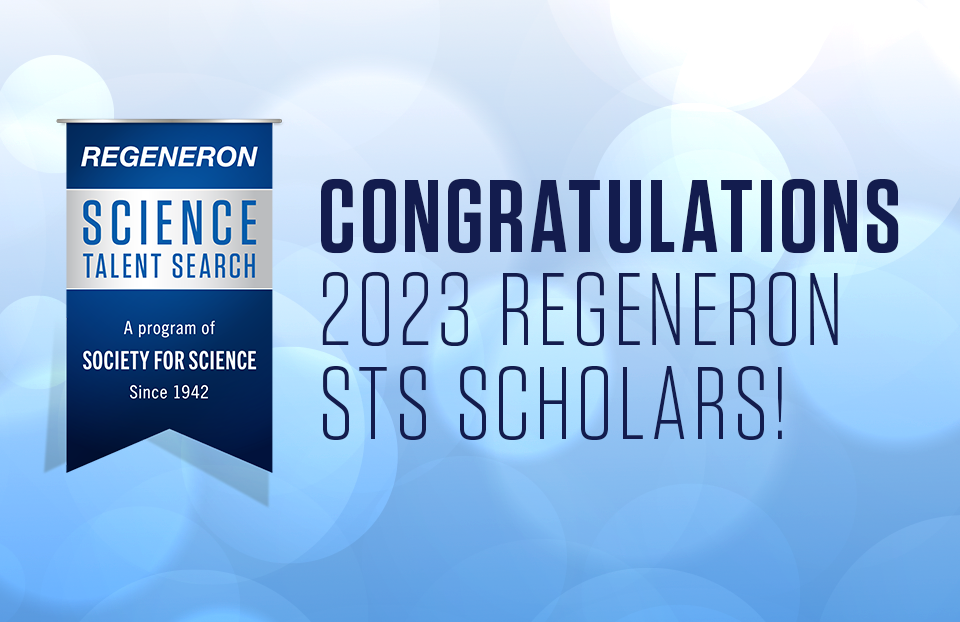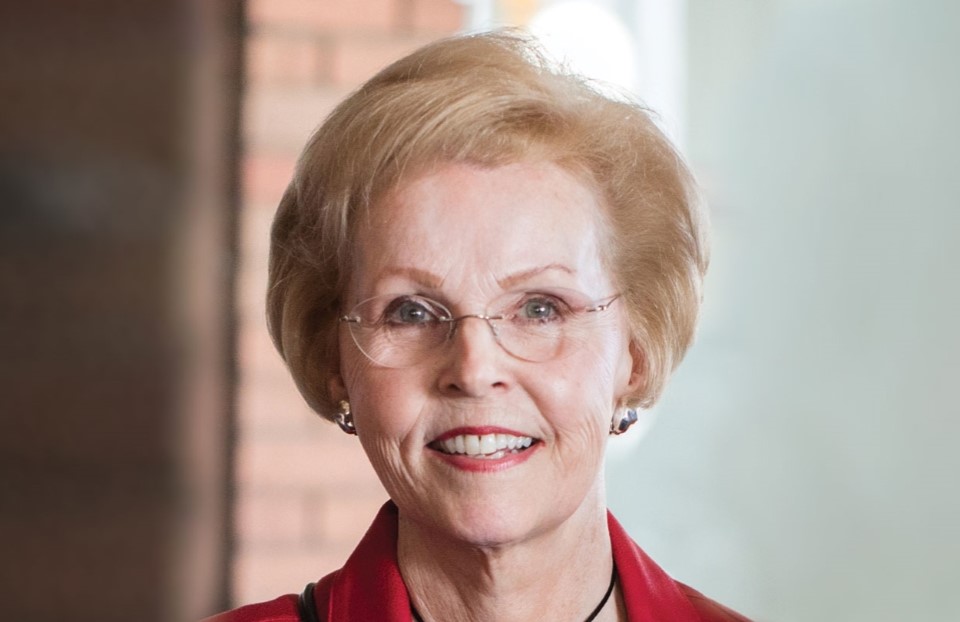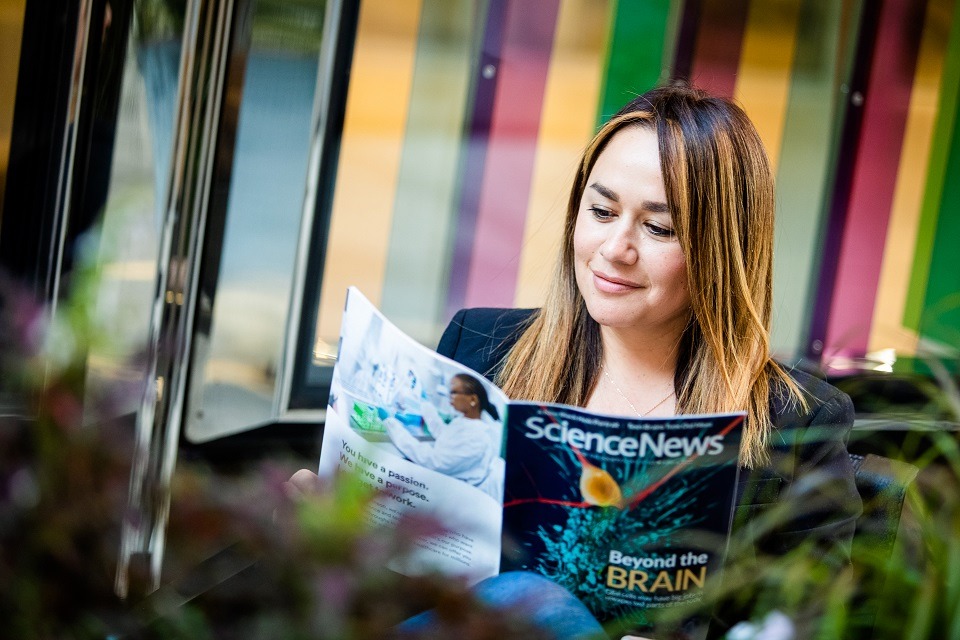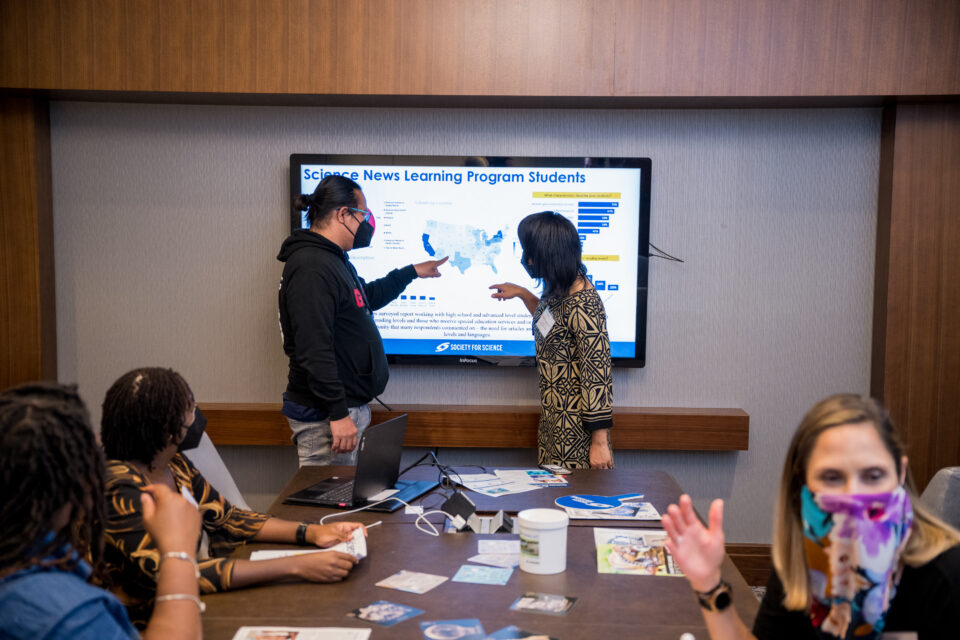1,998 results found for "4"
Blog Post
From the lab to the stage, the Regeneron STS 2023 Top 300 Scholars are ready to change the world
The 2023 Regeneron STS top 300 scholars not only excel in STEM, they also flex their creativity outside of the lab. From time spent in the water to competitive table tennis, these bright young minds are sure to change the world!
2023 Regeneron STS Finalists
Society for Science and Regeneron Pharmaceuticals, Inc. congratulate the 40 finalists in the Regeneron Science Talent Search 2023, the nation’s oldest and most prestigious science and math competition for high school seniors.
White House Photo Gallery
This gallery was created to tell the story of the extraordinary relationship the Society has with the White House and their shared commitment to STEM research and scholarship in America.
Blog Post
Top 300 teen scientists named scholars in Regeneron Science Talent Search 2023
Top 300 teen scientists named as scholars in the Regeneron Science Talent Search 2023. The scholars were selected from 1,949 applicants across 48 states, Washington, D.C., Puerto Rico and four other countries.
Blog Post
Conversations with Maya: Gayle Wilson
2023 Regeneron STS Scholars
Society for Science proudly announces the top 300 scholars in the Regeneron Science Talent Search 2021, the nation’s oldest and most prestigious science and math competition for high school seniors.

